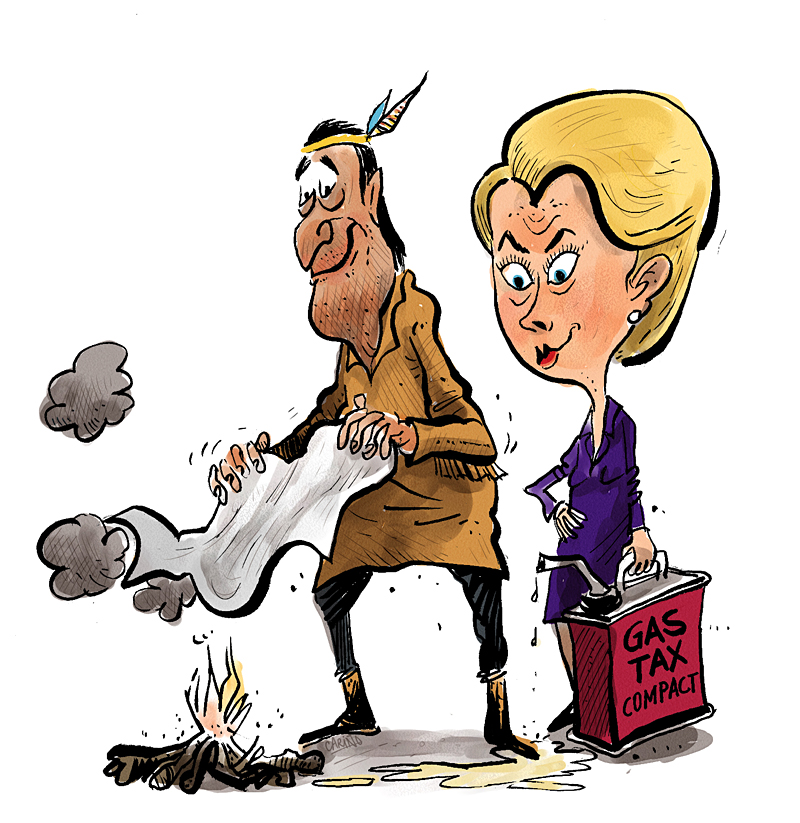Is the state helping Native American gas stations undercut their off-reservation competitors? That’s the claim of a lawsuit that got a go-ahead from the state Supreme Court last week—a case that deals not just with tribal sovereign immunity, but tens of millions of dollars in taxpayer money.
That money is paid to tribes around the state by virtue of a series of gas-tax compacts negotiated by Governor Chris Gregoire. The governor couched these compacts as a compromise. The state had been wrestling for years with tribes over whether they are obligated to pay gas taxes. Under the compacts, the state refunds 75 percent of such taxes paid by the tribes or reservation gas stations.
“The stench from these agreements is so great,” claims former Supreme Court judge and legislator Phil Talmadge, who is representing the plaintiff, a trade group of gas retailers around the state called the Automotive United Trades Organization.
First of all, Talmadge argues in an interview with SW, the state doesn’t need to refund any money at all. That’s because the state isn’t directly taxing tribal gas stations. It’s taxing non-tribal wholesalers; tribal gas stations pay the tax when they buy, not sell, gas. Talmadge says this form of taxing the tribes has been given the OK by the U.S. Supreme Court in a related case. So he says the governor is simply doling out money to the tribes, something that in his brief he calls an “abuse of authority.”
Secondly, Talmadge says that both the compacts and the state constitution require the money given to the tribes, since it is derived from gas taxes, to be used on road projects. Yet, he says, the tribes are not required to provide any accounting to the state which would verify that the funds are being used correctly. And he says the very few reports there are show some funds being used incorrectly—for “trails, a police dog, a community facility.”
His theory, though, is that most of the money—now more than $30 million a year, he says—is going to one thing: subsidizing tribal gas stations so they can offer lower prices.
Assistant state Attorney General Rene Tomisser asserts otherwise. “We know that by and large the tribes are spending the money appropriately,” he says, although he concedes that there may be exceptions. “Has every dollar been spent correctly? I don’t know.”
One of the thorny things about this suit is that it names the state—not the tribes—as defendants. But the tribes are clearly affected, as the state points out in its legal papers—the ones that will or won’t get tens of millions of dollars in funding, depending on the outcome.
In Grays Harbor County Superior Court, where the case was filed, a judge ruled that the tribes were therefore “indispensable” to the proceeding. And since tribes can’t be sued due to sovereign immunity, he dismissed the case.
In last week’s divided ruling, the Supreme Court reversed the lower court’s opinion. While the tribes are affected, the Supremes opined, it is the state’s conduct that is most at issue here, and the state has no business raising sovereign immunity as a defense. Asserted the ruling: “Sovereign immunity is meant to be raised as a shield by the tribe, not wielded as a sword by the state.”








